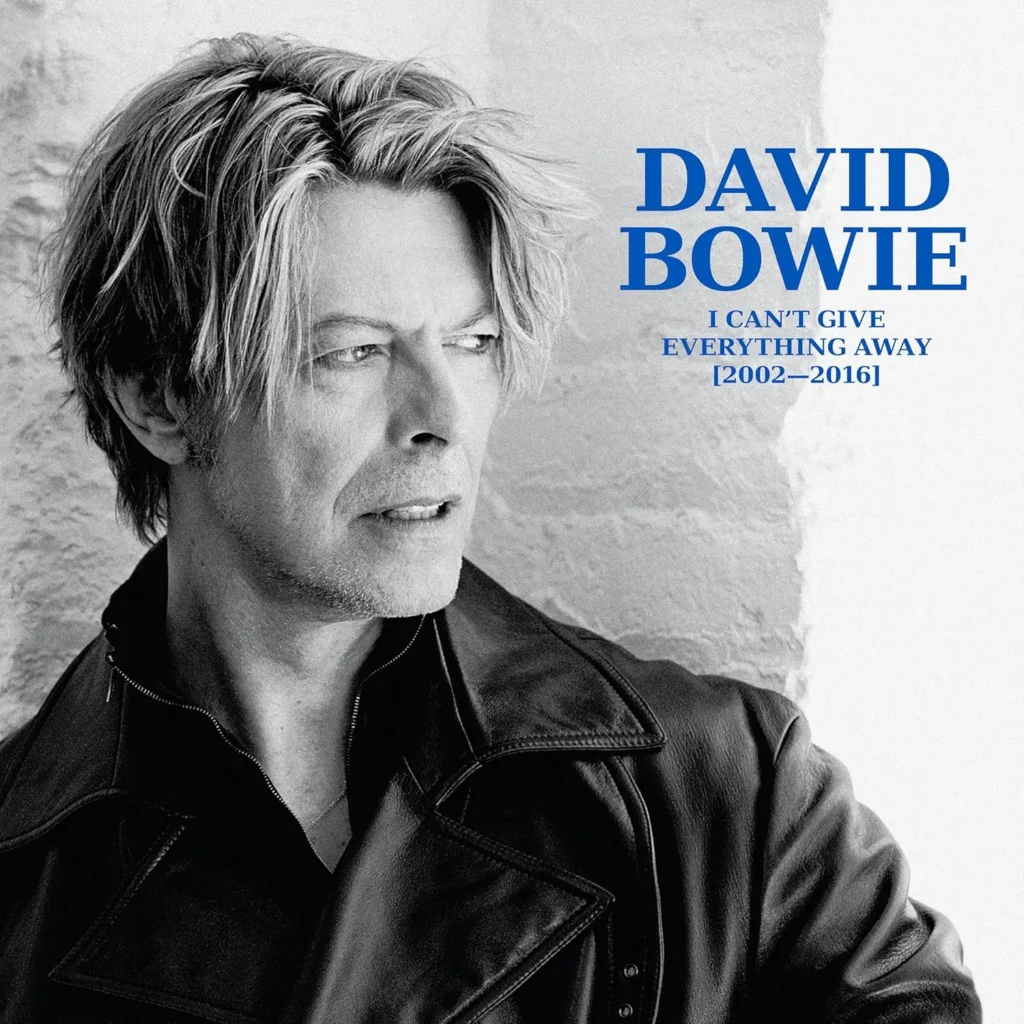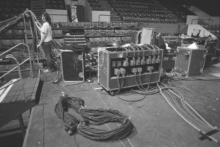To adapt a line from ‘Lazarus’, wasn’t that just like him? Which is to say that, when David Bowie’s death from liver cancer was announced on Sunday 10 January 2016, two days after the release of his final album, Blackstar, only his family and closest friends knew he had been ill. Bowie, ever adept at shaping media narratives, had deftly managed the news of his own passing.
I remember the Monday that followed, filled with tributes, as being imbued with a melancholy glow, a heightened sense that something far more significant than the death of a rock & roll star had occurred. To quote radio critic Gillian Reynolds, reflecting on whether Bowie’s demise was really that important, it was “to anyone born between 1955 and 1975 for whom Bowie became a lodestar for evolving emotion”.
Guilty, but I’d go further. To offer a sweeping, hauntology-adjacent perspective, Bowie, born in 1947, embodied the promise of the post-war settlement. Growing up at a time when, to simplify madly, society was becoming less stratified, Bowie was an autodidact who made the absolute most of the opportunities that came his way. He was open to a world that, as 2016 brought the Brexit vote and the election of Trump as president, was closing in on itself when he died.
Along his way, Bowie shared what he learnt, offering crash courses for the ravers in things they didn’t teach at school in the 1970s: Nietzsche and Neu!, sex and The Stooges, the cut-up technique and Crowley. Looking back, I’m amazed by how many people I knew, those whose worldview was formed during punk and post punk, read Dostoevsky. Iggy’s The Idiot, co-written and produced by Bowie, had much to do with this.
Bowie never stopped being curious. This helps explain why even in his late work – gathered on I Can’t Give Everything Away, the final boxset in a six-set series and which comes complete with a lavish booklet – there’s a kind of underlying pedagogic quality, albeit this is understated and less about sharing his newest obsessions than in earlier years. Instead, the four studio albums included in the set, Heathen, Reality, The Next Day and Blackstar, are largely concerned with anxiety over the world we’re bequeathing our children (Bowie became a father again in 2000), with reassessing life from the vantage of middle age and, at the end, how to face death.
One narrative frames this via the notion of neoclassicist Bowie. Realising his career was cratering, he called up Tony Visconti. Bowie sounded like Bowie again. An oversimplification although, to be fair, Bowie leant into this idea. Curating the Meltdown Festival in 2002, he played both Low and Heathen, connecting the two. You can hear his latter-day take on Low on the Montreux-recorded LP included here. Interesting enough, but you probably had to be there.
A more nuanced take on Bowie in the 21st century begins with the idea that, after his late-1980s nadir, he grafted for years to reconnect with both muse and audience. He made myriad missteps along the way. A syrupy production, for instance, over-sweetened ’hours…’ (1999). Bowie cleared his palate by re-recording old songs for the posthumously released Toy, before arriving at Heathen (2002), an adult alternative airplay-friendly rock album that’s overrated, maybe because people were so relieved it existed at all. Reality (2003), off-putting with its odd Manga-leaning sleeve, covers similar ground more confidently, offers a sense of Bowie stretching himself. It also contains one of his greatest songs, ‘Bring Me The Disco King’, a melancholy reflection on the past illuminated by Mike Garson’s piano flourishes. Underlining the idea that Bowie persevered, it was the third time he’d tried to nail the track.
Judging by the excellent A Reality Tour live album, remastered and resequenced here, Bowie was on a roll. But in 2004, he had a heart attack – possibly more than one – and then largely disappeared from public view. Latterly, the post-neoclassicist Bowie era began on his 66th birthday in 2013 when ‘Where Are We Now?’ dropped without any prior fanfare. It was a carefully calibrated choice as lead single from The Next Day, its weary vocal recalling days in Berlin. Was he okay? Frankly, you suspect Bowie was taking the piss, playing to the idea health issues had forced him into semi-retirement. The LP itself was strong enough to imbue optimism about what lay ahead.
The compilation Nothing Has Changed featured ‘Sue (Or In A Season Of Crime)’ (2014), a collaboration with orchestra leader and composer Maria Schneider. The ground was being tilled for Bowie’s extraordinary swansong, Blackstar. Having made three largely outward-facing rock albums, Bowie recruited the New York jazz quartet led by saxophonist Donny McCaslin to work on his final, far more introspective recordings.
Later, it was clear he’d sprinkled clues as to what was imminent. The button-eyes motif in videos referenced coins to pay the ferryman, but he couldn’t give everything away. Indeed, Bowie wrote few songs as direct as, say, ‘Letter To Hermione’ (1969). Bowie was rarely that obvious, although it’s worth emphasising again how he shared plenty, albeit on his own oblique terms, even when it came to autobiographical matters. In passing, he always had plenty to share: his late-career bits-and-bobs tracks, as evidenced by the music gathered on the Re:Call 6 compilation and The Next Day Extra and No Plan EPs, were often fantastic.
While the final track on Blackstar gives this collection its name, ‘Dollar Days’ is more poignant. The lyric spits at “oligarchs with foaming mouths” and the pun in recurring line “I’m dying to” never quite hides the fear. Yet the melody is gorgeous. There are gentler reflections on how “cash girls suffer” Bowie and haunting references to “English evergreens”. It’s likely a coded message to his fans, the “cash girls” and boys who bought his albums. But it also works as a companion piece to ‘Where Are We Now?’ An émigré Bowie in New York this time, a superstar autodidact fading and fumbling for change, looking back yet also offering a first-hand report from the frontline of his impending demise every bit as radical and generous in its quiet way as anything else he ever recorded.






